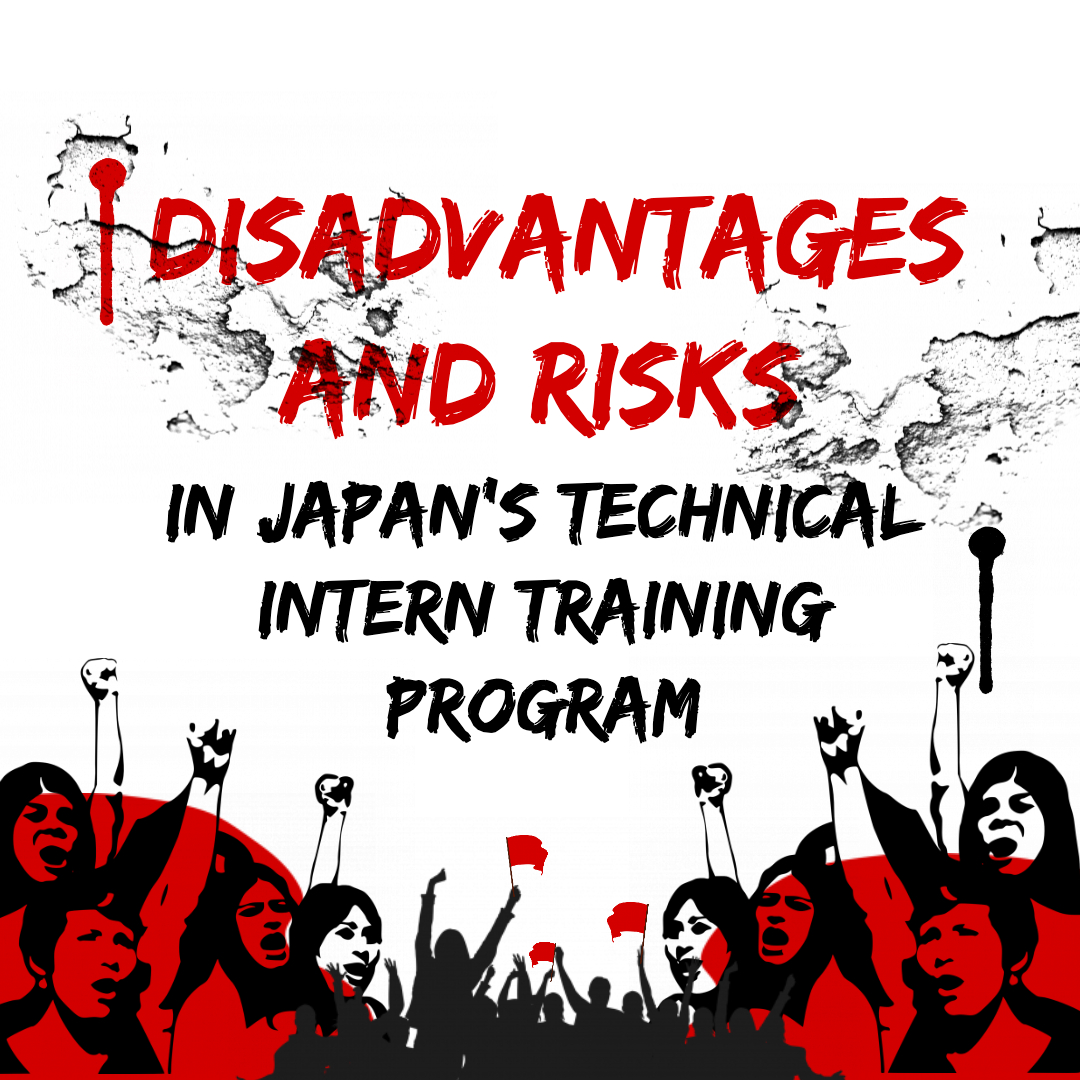公開日 2020年05月25日
更新日 2021年11月22日

Part II. Debt
Many of the Filipino trainees that been interviewed had accrued significant debt during their time in the TITP that, in effect, prevented them from leaving their jobs. It was reported that the need to pay off recruitment fees led them to endure difficult experiences in Japan, and most reported feeling it was impossible to leave their job before paying off their debt.
Many respondents reported taking on debt to secure their positions, leaving them highly vulnerable to the threat of financial penalties. While most trainees borrowed money from friends and relatives to pay recruitment fees, some obtained loans from banks by mortgaging their homes. In most cases, regardless of the party to whom the debt was held, its existence acted as a binding agent, leading interviewees to feel they had no choice but to serve out their three-year trainee term in order to pay off the debt incurred.
Many Filipino trainees reported paying a deposit during the recruitment process as part of their recruitment fees. Trainees reported that they were told the deposit would be forfeited if they left the program before completing the full three years. Compare, some trainees reported being required to take out IOUs that were presented as a form of debt that they would have to repay should they fail to meet agreed-upon conditions.IOUs generally required trainees to find a guarantor – typically a family member – for their debt.
Once in Japan, Filipino trainees must pay fees for re-application exams, which in practice could serve to inflate debt burdens.JITCO requires each foreign trainee to take a national skill test after their first year, to continue with the program. Some organizations that spoke of trainees paying JPY 20,000 (Pesos 9,600) to attend pre-test training in the morning before taking a re-application test costing JPY 25,000 to 35,000 (Pesos 12,500 to 17,500) in the afternoon. For the pre-test training, the administrators of the test reportedly asked test-takers to perform basic tasks (in one case, the task was shoveling). Despite under JITCO requirements trainees are not supposed to pay these fees, some of those reported that oftentimes their employers would ask them to share the cost of the tests. According to Filipino trainee, the people sponsor the tests and providing pre-test training are often the same, and are, in some cases, retired officials from relevant government departments.
Some Filipino trainees reported struggling with a high cost of living, which could also inflate debt burdens. For the 132 trainees, the average cost of rent and utilities was JPY 30,400 (15,000 Pesos) per month, equivalent to one-quarter of their average pay. In some extreme scenarios, among trainees interviewed, rent plus utilities reached JPY 50,000 (25,000 Pesos), accounting for almost half of the average monthly wages.
On our next blog we will talk about more of these problems. Stay Tuned!
 0120-593-186
0120-593-186